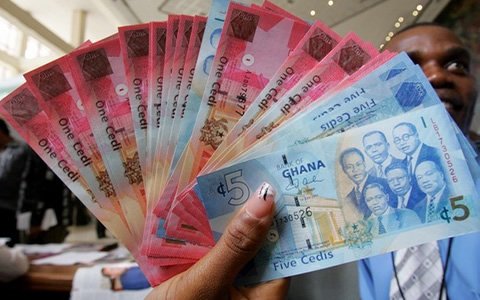The Ghanaian Cedi has been depreciating against major trading currencies for the past few weeks. On Wednesday, February 20, 2019, the Cedi is trading at 5.25 against the US Dollar.
Due to this, some industry players have called on the Central Bank to put in more dollars to ease the pressure of doing business in the country.
But explaining the current depreciation of the Cedi on Citi FM, Director of Treasury at the Bank of Ghana, Stephen Opata said some key factors are making it difficult for the cedi to be stable in the past weeks.
Comparing the trend of depreciation from 2018 to January 2019 he said: "as at the end January, approximately the cedi has depreciated by 3.6 per cent if you compare it to the same period in 2018 it's a slight depreciation of 0.1 per cent, and this means the trend can be reserves subject to significant foreign inflow and other factors.
Read also: Cedi depreciation: Check what Ghanaians are saying about itÂ
Outlining the factors, Stephen Opata said the depreciation of the cedi last year was mainly driven by external development as well as some domestic pressure from the corporate and energy sectors and more recently re-alignment of the rate in the market.
"First is our foreign exchange cover from non-resident investors, repatriation of coupon payments and bond maturities, we have a significant international investor base who invest in our bonds and when coupons are due and the banking system is not able to meet the foreign demand to repatriate the coupons and maturity, then sometimes they will have to fall on the central bank and we use our reserve to meet that, an important source of pressure is also from the energy sector especially independent power producers obligations and oil import."
"Then we also experience some high offshore cost by this I'm talking about international investors on reported tight forex liquidity and we also have observed that corporate demand is relatively on the high side," he added.
He concluded by saying "the statistical adjustment to re-align the rate that we did in the middle of January, this was base on a feedback that the Bank of Ghana's reference rate had diverged a little bit from the average inter-bank rate that has been quoted by the banks, so we adjusted the formula to remove some of these distortions."
According to him, people should not overreact over the current rate of depreciation of the cedi because from all indication the fundamentals are solid.
"These development do not reflect the fundamentals then we expect recovery, look at the fiscal situation it is in pro significance, trade account is very solid two years consecutively of trade surplus, current account has also improved but this has been drag a little bit down because of the services account which continue to show high net outflow."
Explaining further, Stephen Opata said the main focus of the Central Bank is to stabilize the currency and make it consistent with inflation.
"The exchange rate in run in Ghana is the flexible exchange rate regime, and the focus should not be on targeting a number because if you do that then you may not be getting the whole picture so we are looking at is the currency should not be volatile."
www.primenewsghana.com/Â Ghana News
Â





